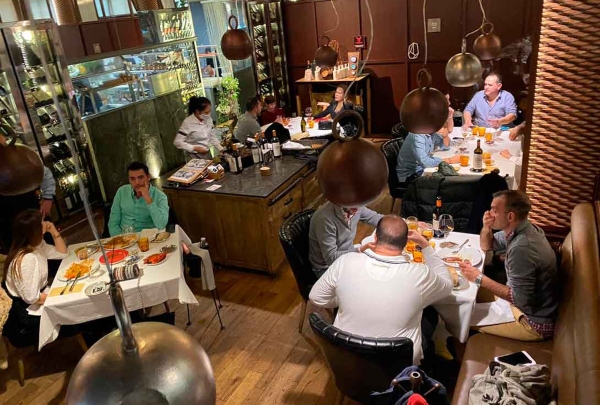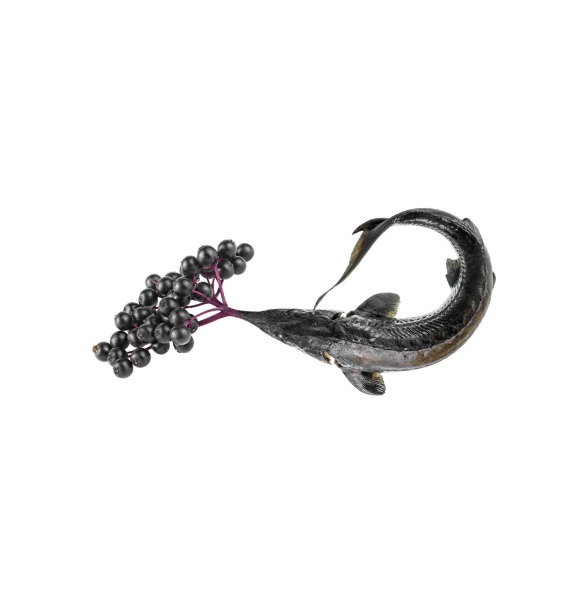Opinion
New ideas for the 21st century

What will gastronomy be like in the future? What challenges will it face? Are we ready to overcome them? José Carlos Capel, president of Madrid Fusión, offers his vision.
In the field of restaurants, Madrid accumulates a sum of paradoxes.
While a substantial part of the Spanish hotel and catering industry, including that of Madrid, is anxiously calling for strategic recovery and reactivation plans, the capital is witnessing contradictory situations. Shocking closures are alternating with openings - Bel Mondo; La Maruca de Castellana; Sagrario Tradición; Casa Orellana; El Castizo de Velázquez; Papúa; Nado - that seem to face the future with optimism. Something disconcerting. Even more so when some of the newcomers benefit from considerable waiting lists and are forced to organise rigorous shifts to attend to the pressure of their large clientele.
Is this a socially and economically fractured metropolis where, despite curfews and perimeter confinements, successful openings and establishments are set against serious crises? Is the novelty effect in some of them a factor, or are some restaurants better targeted and better managed than others so far?
Since the outbreak of the pandemic in our country, the behaviour of restaurant customers has left data for analysis. Broadly speaking, and according to owners and chefs, there has been a generalised fall in the average price, a trend towards the consumption of cheaper wines and a shift towards starters and traditional recipes. "In times of crisis, cuisine returns to refuge values," says French sociologist and anthropologist Claude Fischler. "Insecurities make us conservative, he concludes. "Conservatism is the most current of all trends," stresses sociologist Julio Seoane.
Undoubtedly, the situation will be reversed as soon as we return to the normality we all long for, but not before taking on changes of varying depth. For the moment, according to the latest openings, the fashion is for contemporary eating houses, hen en pepitoria, pickles and patatas bravas.
No one disputes that the Spanish hotel and catering industry, demoralised by the loss of economic and psychological stimuli, needs urgent financial, fiscal and employment aid to survive in adverse times. Legitimate support, still pending, which has not been implemented as urgently as it should be. Beyond the obvious, let us stop looking at the short term - I insist - to glimpse a future that seems imminent.
If my notes are not mistaken, Spain will be one of the EU countries that will benefit most from the Next Generation EU Recovery Fund aimed at rebuilding and transforming member states' economies. A dizzyingly large aid package is on the horizon. Under the Recovery and Resilience Mechanism (RRM) aimed at accelerating sustainable recovery by country, Spain will receive a total of 60 billion euros in non-refundable transfers, and up to 80 billion euros in loans. As part of the REACT EU, aimed at accelerating sustainable recovery, Spain will receive just over 12 billion euros in 2021, with two priority destinations, green investments and digital developments. Let's keep both concepts on fire.
The question is inevitable: Has the Spanish Hotel and Catering Industry and the organisations that bring together restaurants and chefs begun to take positions with the advice of competent professionals to guide all their members in the management and application of the possible funds for the reconstruction of the REACT EU that is coming? I am afraid that my question, by its hasty nature, comes as a surprise. If not, I am glad. We must be clear about this. According to Brussels' warnings, the reconstruction funds will be used to stimulate the conversion of sectors considered strategic. They will in no way contribute to maintaining the structures in place on the eve of the pandemic.
In our country, the hotel and catering industry and tourism, which are considered strategic sectors, will have to do what is necessary to participate in the appropriate allocations. I bring up the phrase of my colleague and friend Fernando Gallardo: "The hotel and catering industry needs ideas for the 21st century, many of those that prevailed in the 20th century are old or outdated.
Despite what the most conservative people may regret, the sector is going to face important challenges, including the application of much more modern and intelligent management methods aimed at achieving profitable projects. The hospitality industry does not need to reinvent itself, a phrase I have heard ad nauseam, but to reconvert itself with varying levels of intensity, depending on the case. The sector has already lost too much to miss out on a new train and continue to lag behind an unstoppable evolution.
It is difficult not to admit that the future will be more sustainable and collaborative restaurant models, much more efficient and much better organised as a result of the digital acceleration in which we are immersed. Processes such as the rationalisation of work systems in the dining room and kitchen and the improvement of traceability in terms of supplier networks are essential. As important as the management of booking platforms and payment systems, or the adoption of key measures in waste management, energy efficiency and the contribution to the sustainability of a society going through one of the strangest periods in its history.
The means to evolve - the EU has repeated this in economic terms - are through research, training and knowledge. And the keywords, nature and technology, the binomial of a future that is looming over the present.
José Carlos Capel














